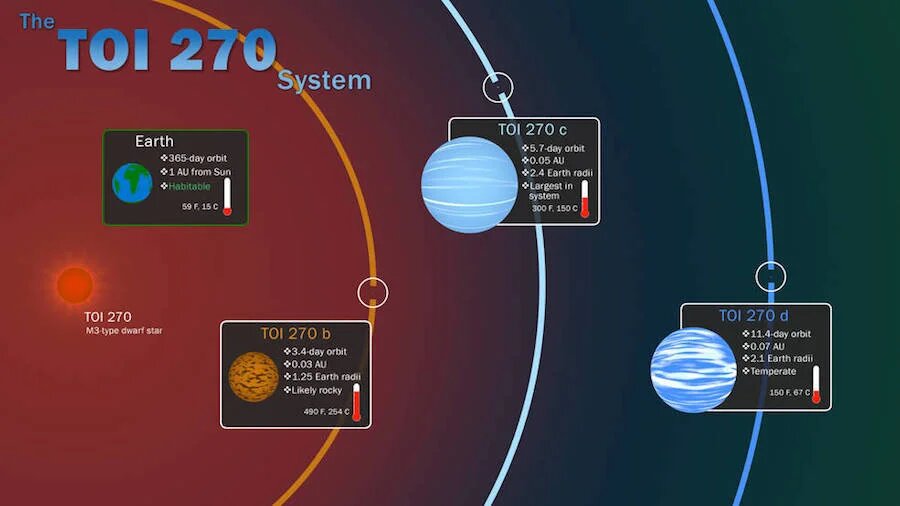Science & Technology
TOI 270 System
- 31 Jul 2019
- 3 min read
The National Aeronautics and Space Administration’s (NASA) Transiting Exoplanet Survey Satellite (TESS) has discovered a new planetary system called TESS Object of Interest (TOI) 270.
- TOI 270 is about 73 light years away from Earth, and is located in the constellation Pictor (Pictor is a constellation in the southern celestial hemisphere).
- TOI 270 system comprises of the dwarf star (TOI 270), which is 40% smaller than the Sun in size and mass and three new exoplanets planets (planets outside the solar system):
- TOI 270 b: It is the innermost planet, and is likely a rocky planet about 25% larger than Earth.
- It orbits the TOI 270 (dwarf star) every 3.4 days at a distance of about 13 times closer than that of Mercury orbiting the Sun.
- TOI 270 b has a mass of around 1.9 times greater than Earth’s mass.
- Due to its proximity to the star, planet b is an oven-hot planet and is not habitable.
- TOI 270 c: It is 2.4 times larger than Earth, orbits the star every 5.7 days and weigh around 7 times Earth’s mass.
- TOI 270 d: It is 2.1 times larger than Earth, orbits the star every 11.4 days and weigh around 5 times Earth’s mass.
- TOI 270 b: It is the innermost planet, and is likely a rocky planet about 25% larger than Earth.
- TOI 270 c and TOI 270 d both may be similar to Neptune in our solar system, with compositions dominated by gases rather than rock.
- They might best be described as mini-Neptunes, a type of planet not seen in our own solar system.
- All of the planets in the TOI 270 system are expected to be tidally locked to the star, which means the planet's period of rotation on its axis is same as its period of revolution around the star and keep the same side facing the star at all times, just as the Moon does in its orbit around Earth.
- TOI 270 system will provide better understand about the formation and evolution of planetary systems.
- The TOI 270 system is so compact that the orbits of Jupiter and its moons in our own solar system offer the closest reasonable comparison.







-min.jpg)